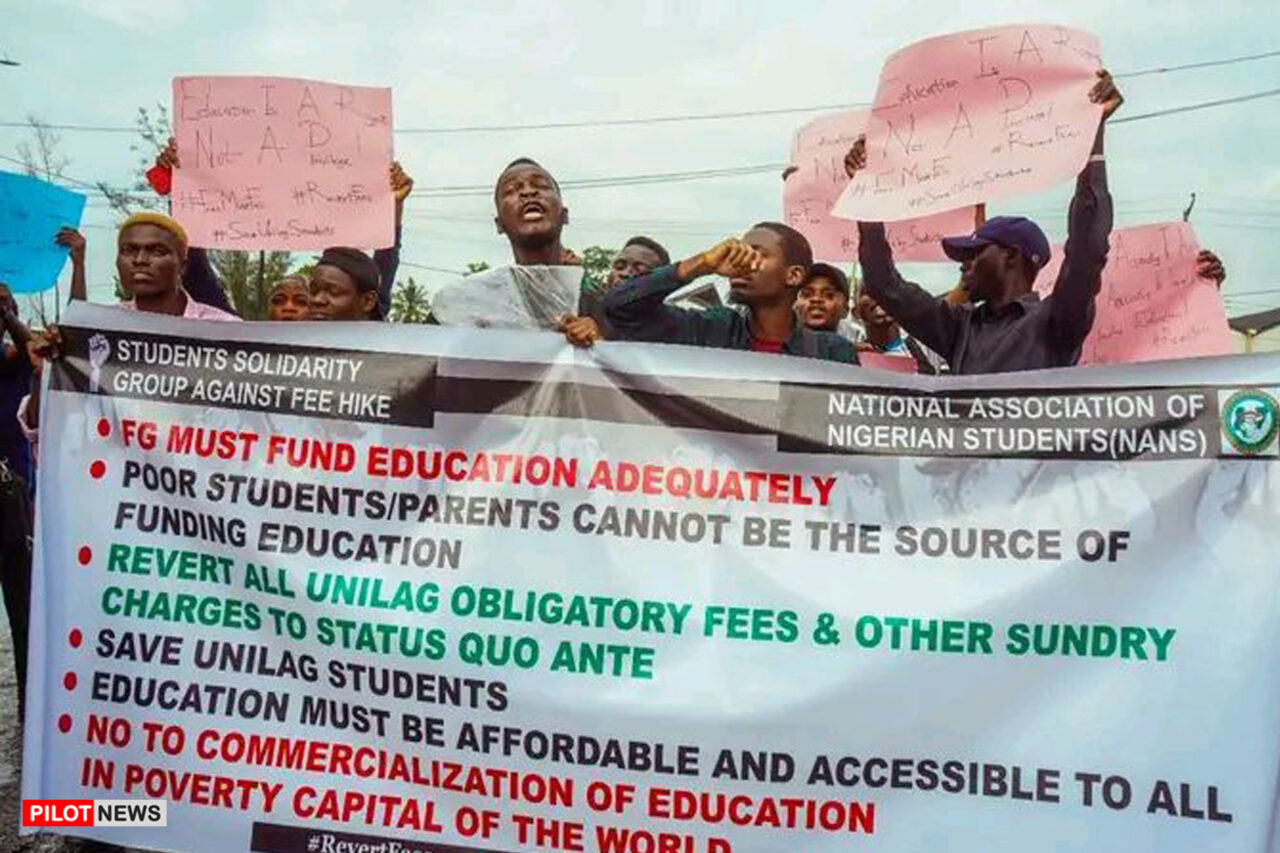“There is victory for us. In the struggle for education, there is victory for us,” was the chant oozing from students of one of Nigeria’s high-profiled universities protesting a sudden hike in fees last week.
The protest was one of the many that have been witnessed in many tertiary institutions in the West African country in the past week as a result of the arbitrary increase in administrative charges by school authorities.
A tsunami of school fee hikes hit Nigerian public universities
Nigeria joined the ranks of nations offering student loans in June after President Bola Tinubu assented to the Access to Tertiary Education Act, also known as the Student Loan Act, by lawmakers. Government officials said the initiative will enable indigent students to access federal government loans to fund their university education, much like what is obtained in the United States and other developed countries.
In a knee-jerk reaction to the Nigerian government’s idea of a cost-effective university education, several public institutions instantly inflated their fees by 100 to 200 per cent. Authorities justified the drastic increment in fees on poor government funding of tertiary education and rising operational costs, including increased staff salaries, maintenance expenses, and the need for technological upgrades to keep up with the evolving educational landscape.

They also mentioned inflationary pressures. Petrol prices in Africa’s biggest economy are now selling at an average of ₦617 per litre from an average of ₦190 in May before the Nigerian government ended its subsidy programme. The situation led to a spike in the costs of food, transportation and healthcare.
Some of Nigeria’s public universities that recently increased school fees and other sundry charges payable by students amid all-round inflation include Obafemi Awolowo University, OAU, in Osun State; University of Lagos, UNILAG, in Lagos State; Bayero University, Kano, BUK, in Kano State; University of Benin, UNIBEN, in Edo State and University of Jos, UNIJOS, in Plateau State.
OAU’s revised fee schedule, effective September 12, will see new students pay over ₦100,000 while returning students will pay nothing less than ₦80,000 At UNILAG, the fee of medical students who previously paid ₦19,000 was jacked to ₦190,250. Fees for other students were also increased. New students of UNIBEN now pay ₦105,000 (non-science students) and ₦115,000 (science students) from a range of ₦69,000 and ₦73,000.
Other institutions that have since joined the fee-hike fray include the University of Nigeria, UNN, in Enugu State; University of Ibadan, UI in Oyo State; University of Maiduguri, UNIMAID, in Borno State; Chukwuemeka Odumegwu Ojukwu University, COOU, in Anambra State and University of Abuja, UNIABUJA, in the Federal Capital Territory among others.
For the overwhelming majority of Nigerian students, the increment in school fees took them by surprise. They were not adequately prepared for such a financial burden and they are now faced with the daunting task of reassessing their budgets and making difficult decisions to ensure they remain in school.
Students of UNILAG, UNIJOS, and OAU staged a protest in their respective institutions last week, demanding a reversal of the increment. A protest at state-owned Ambrose Alli University, AAU, in Edo State, only resulted in the suspension of academic activities and the dissolution of the school’s student union body.
Alexander Pius studies Science Laboratory Technology at UNIJOS. His father is late and to cater for Pius and his five siblings, his mother sells akara (bean cake) in their neighbourhood in Jos. To support his mother, Pius picked up barbing as a side hustle. On learning of the federal university’s new rate, he was devastated because he could not afford to meet the new financial requirement.
“With ₦45,000 as school fees, I knew what I went through because I’m the one seeing myself through school,” the student in his second year who is expected to pay ₦140,000 excluding other sundry charges told The West African Pilot News, “The increment in school fees is outrageous. What about other parents like my mom? What about the students sponsoring themselves in school?
Despite President Bola Tinubu’s directive that Nigerian public universities should stop the arbitrary fee hike, it is feared that many schools yet to revise their fees might do so in the coming weeks as this seems to be the only feasible way for public universities to generate more funds given the prevailing economic realities.
“I’m very sure our fees will be increased next session. I paid ₦46,000 this year, next year, who knows, I might pay ₦90,000,” Godwin Miriam, a sophomore student of Theatre and Performing Arts at Ahmadu Bello University (ABU, Kaduna State) told our correspondent.
- Civil Society Group to Stage Protests in Kaduna Against El-Rufai - March 2, 2026
- Oil Prices Hit $79, Surpass Nigeria’s Budget Benchmark - March 2, 2026
- A Decade After Chibok Abduction, Documentary Spotlight Parents’ Pain - March 2, 2026

